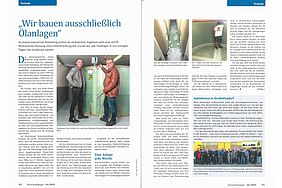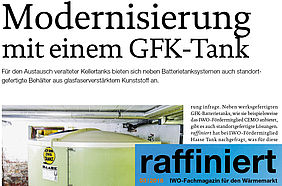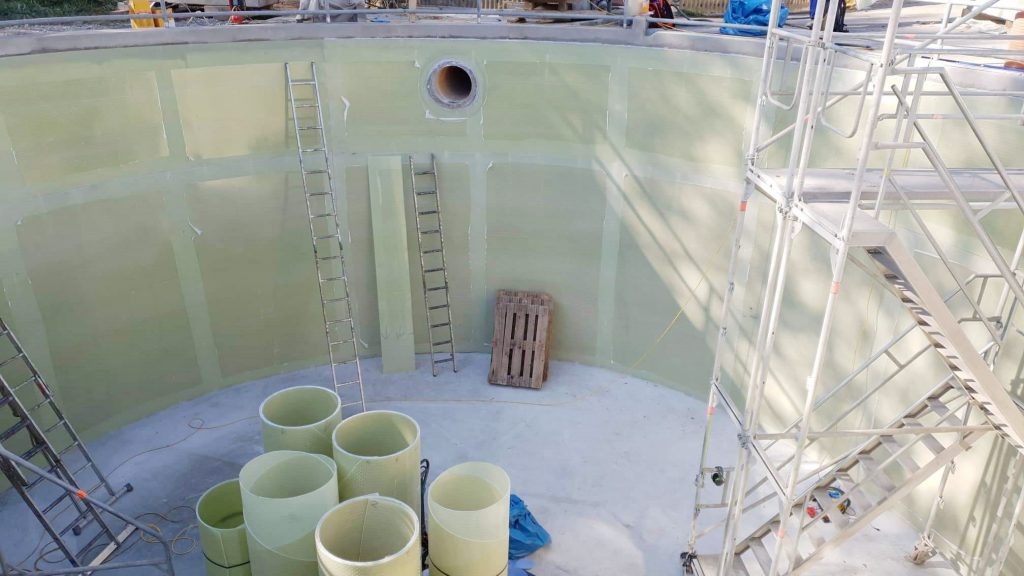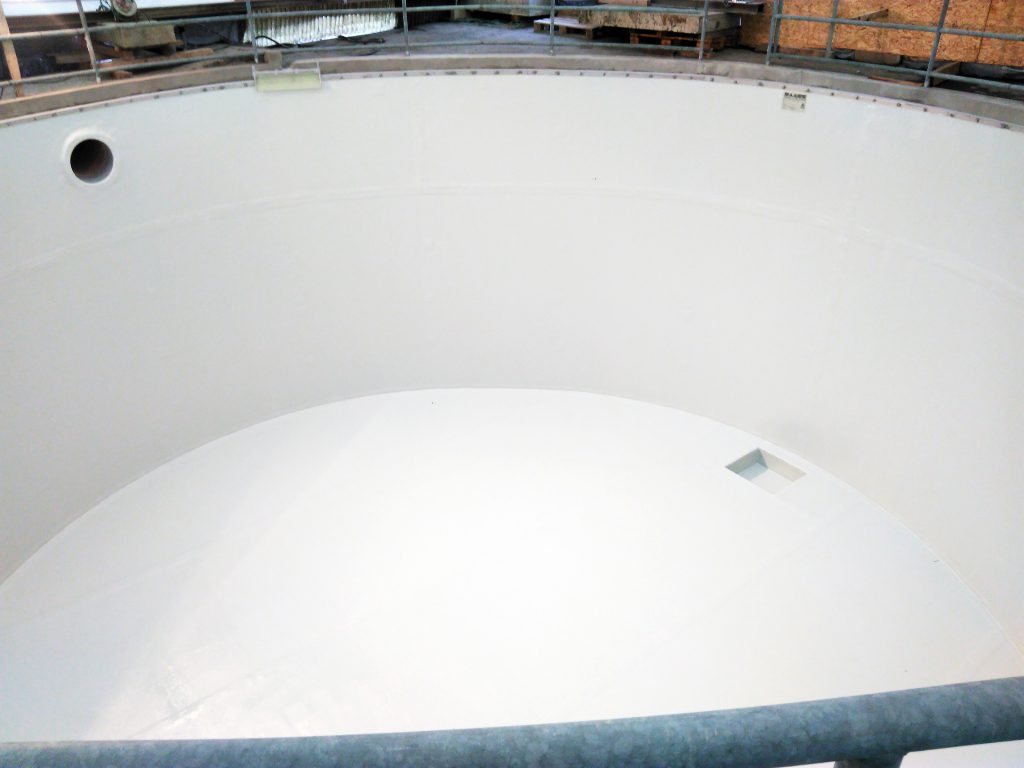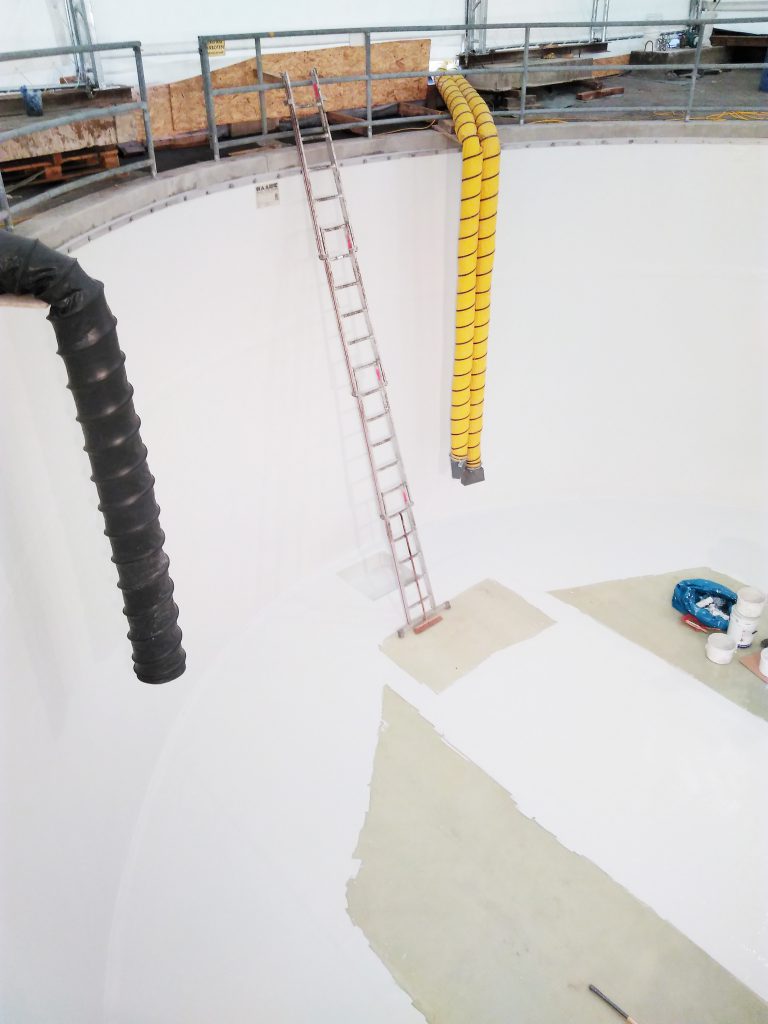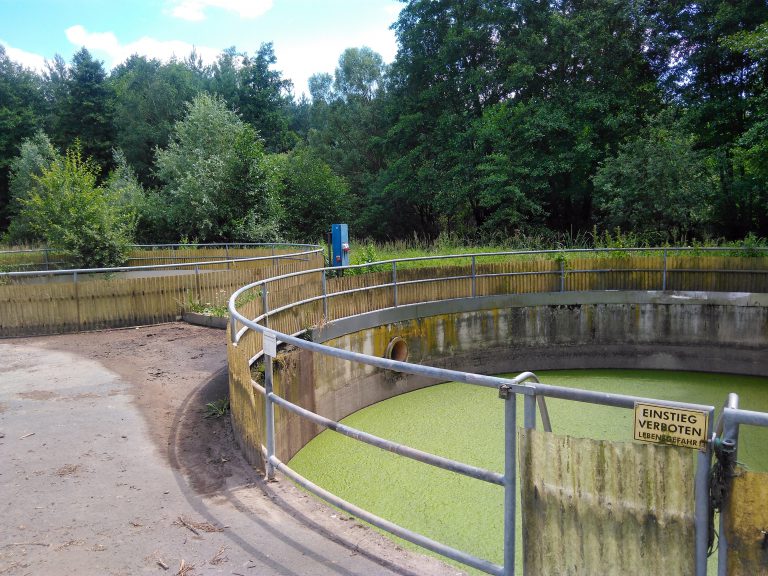
Leachate occurs primarily in landfills, where seeping precipitation releases contaminants from the deposited waste. Therefore, it must be prevented that these pollutants get into the groundwater. For this reason, the leachate is collected and then cleaned, e.g. B. by reverse osmosis or activated carbon adsorption. Leachate also occurs in composting plants. The pollutants contained therein are chemically particularly aggressive and attack the walls of the catch basin. Since leachate basins are often only made of concrete, they will leak over time and have to be refurbished. Ideally, a refurbishment should not only restore the original state, but also find a permanently sealed solution. A liner with GRP is therefore suitable for leachate basins.
Glass fiber reinforced plastic is permanently durable, easy to process and can be prefabricated over a large area, which significantly reduces the renovation and thus downtimes. These were also the decisive reasons for the operator of a composting plant to renovate 2 concrete seepage water pools, each with a volume of 475 m³, with GRP. The pools each have a diameter of 11 m and a height of 5 m. Since one basin must always remain in operation to maintain composting operations, the two basins are renovated one after the other. The prefabricated board laminates were delivered to the construction site as rolls, anchored there on the walls and on the floor and overlaminated at the connection points. To prevent water from penetrating between the GRP lining and the concrete wall, the laminate panels are screwed to the wall in the upper area and provided with a permanently elastic sealant. Finally, the lining was coated with a RAL color. Pump sumps and the pipelines were of course included in the renovation.


